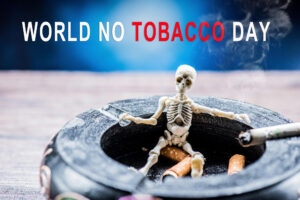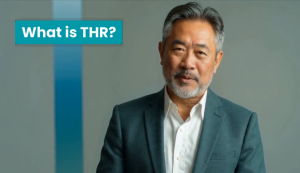The effects of Bloomberg Funding on THR

Tobacco remains a leading cause of preventable death worldwide, claiming over eight million lives annually according to the World Health Organization (WHO). As policymakers, public health advocates, and consumers seek effective solutions to reduce this toll, the landscape is shaped not only by national governments and scientific research, but also by the actions of powerful philanthropic organizations. Among the most influential in the tobacco control space is Bloomberg Philanthropies, which, through significant funding, has played a central role in shaping global and national tobacco policies.
This document seeks to examine the multifaceted effects of Bloomberg Philanthropies’ funding on tobacco harm reduction (THR), access to less harmful nicotine products, adult rights, and national sovereignty. By exploring these themes, we can better understand the balance between global public health objectives and the rights of nations and individuals.
Bloomberg Philanthropies and Global Tobacco Control
Founded by Michael R. Bloomberg, former Mayor of New York City, Bloomberg Philanthropies has invested over a billion dollars in tobacco control efforts, targeting low- and middle-income countries (LMICs) with the stated goal of reducing tobacco use and its associated harms. By supporting initiatives such as tobacco taxes, advertising bans, graphic warning labels, and smoking cessation campaigns, Bloomberg funding has contributed to the reduction of smoking rates in several countries.
However, Bloomberg’s approach is often characterized as uncompromising and ‘endgame-oriented’— favoring policies that aim to eradicate all forms of tobacco and nicotine use, with little distinction between combustible tobacco (the most deadly form) and non-combustible, lower-risk alternatives. This stance has generated vigorous debate within the global public health community.
The Impact on Tobacco Harm Reduction
Tobacco harm reduction (THR) refers to strategies that aim to reduce the health risks associated with tobacco use, particularly for those who are unable or unwilling to quit nicotine. These strategies include the promotion and regulation of less harmful nicotine delivery products such as e-cigarettes, nicotine pouches, and heated tobacco products, which are generally recognized by experts as significantly less harmful than combustible cigarettes.
Bloomberg Philanthropies, however, has consistently funded organizations and campaigns that oppose THR approaches. Recipients of Bloomberg grants—including The Union, Campaign for Tobacco-Free Kids, and Vital Strategies—have advocated strongly against the use of e-cigarettes and other non-combustible nicotine products. These organizations often lobby for bans, flavor restrictions, or excessive regulation of these alternatives.
This anti-THR approach has several documented effects:
- Reduced Availability of Less Harmful Products: In countries influenced by Bloomberg-funded campaigns, governments are more likely to impose outright bans or severe restrictions on vaping and other lower-risk products. For example, India, with the support of Bloomberg-funded activists, instituted a comprehensive ban on e-cigarettes despite allowing the continued sale of deadly cigarettes.
- Limited Access to Harm Reduction for Smokers: By focusing almost exclusively on abstinence-based policies, Bloomberg-funded efforts may deny adult smokers access to products and strategies that could help them transition away from combustible tobacco.
- Skewed Public Perceptions: Campaigns supported by Bloomberg often promote the idea that all nicotine products are equally harmful, which can undermine public understanding of risk differences and deter smokers from switching to safer alternatives.
Effects on Less Harmful Nicotine Choices
The drive to limit or prohibit access to less harmful nicotine products has profound implications:
- Consumer Choice: Adults who smoke and want to reduce health risks find their options constrained, as safer alternatives are removed from the market or rendered inaccessible through restrictive regulations.
- Contradictory Outcomes: While the intention is to reduce nicotine dependence, bans on alternatives often result in continued smoking of combustible tobacco, which is the leading cause of tobacco-related disease and death.
- Development of Unregulated Markets: When legal, regulated access to harm reduction products is blocked, illicit markets often arise, leading to unregulated, potentially unsafe products and lost opportunities for public health oversight.
A notable example is the Philippines, where strong advocacy from Bloomberg-funded organizations pushed for strict regulations, leading to confusion and debate among policymakers. Meanwhile, nations such as the UK and New Zealand, which have embraced harm reduction, report declining smoking rates and positive public health outcomes.
Implications for Adult Rights
Public health policy must balance collective well-being with individual rights, especially the rights of adults to make informed choices about their health and lifestyles. The Bloomberg-supported stance on tobacco control has raised ethical concerns regarding:
- Autonomy and Informed Consent: Denying or restricting access to less harmful products may infringe on the autonomy of adults who have the legal right to use nicotine and who should, ideally, be empowered to choose safer alternatives.
- Disproportionate Impact on Marginalized Groups: Adult smokers, especially in LMICs, often lack access to healthcare and cessation services. Curtailing harm reduction options can further marginalize these groups, exacerbating health inequalities.
- Censorship and Information Control: Some Bloomberg-funded campaigns have supported the restriction of advertising or even the dissemination of information about the relative risks of nicotine products, limiting adults’ ability to make evidence-based decisions.
National Sovereignty and Policy Autonomy
Global philanthropy wields considerable power, especially in LMICs where governments may face budget constraints and welcome financial support for public health efforts. However, this dynamic raises questions about national sovereignty:
- Influence on Domestic Policymaking: Bloomberg Philanthropies often provides technical assistance, training, and resources to government agencies and local NGOs, which can shape national policy priorities and strategies.
- Potential for Policy Capture: Critics argue that large-scale funding can lead to an overreliance on donor-led priorities, sidelining locally generated evidence and public health needs.
- International vs. Local Evidence: The global push against harm reduction, driven by international NGOs and funders, may conflict with emerging research and best practices tailored to local populations.
Countries such as Kenya, Indonesia, and Ukraine have experienced significant external influence in the drafting of tobacco control laws, sometimes leading to friction between local stakeholders, governments, and international organizations.
Conclusion
Bloomberg Philanthropies’ investments in global tobacco control have undoubtedly contributed to raising awareness, improving cessation services, and supporting the implementation of evidence-based measures for tobacco control. However, their consistent opposition to tobacco harm reduction and less harmful nicotine products has created a polarizing environment that may undermine efforts to reduce tobacco-related harm on a global scale.
The balance between philanthropy-driven public health initiatives and respect for adult rights and national sovereignty is delicate. Moving forward, a more nuanced approach—one that embraces harm reduction, respects local contexts, and protects adult autonomy—may offer the most promising path toward reducing the global burden of tobacco-related disease without compromising fundamental rights or national policy independence.








